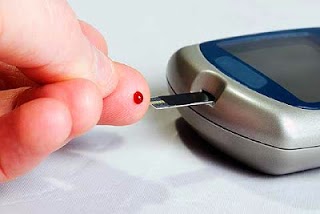When we look to our biological family members, not only will we see similarities in eye color, hair, skin, height, and so forth, but we also often see similarities in body shape and size. Many people who struggle with elevated body weight will have family members that struggle as well.
So: To what extent is obesity inherited?
A recent review in the journal Obesity summarizes current knowledge on this topic.
It turns out that genetics contribute to about 40-50% of the variability in body weight status overall. Interestingly, this genetic determination is lower in healthy weight people (about 30%) , and much higher in people with obesity (60-80%). Obesity-promoting genes can be carried by healthy weight people and have minimal effect, but have larger effects in people who are prone to obesity. It is not known whether these larger effect sizes actually cause obesity, or whether (epi)genetic changes are caused by carrying elevated body weight. If both parents have obesity, there is a 20 times higher risk of their child having obesity as an adult, compared with adult children of healthy weight parents.
Heritability of patterns of fat deposition (under the skin vs around the organs, central vs periperhal, etc) is also strong, estimated at 30-50%. Even fat deposition in liver, kidney, and muscle has a heritability of around 35%.
While there are a handful of single-gene defects that can cause obesity, in most cases, the genetic contribution to body weight is based on input from thousands of different genes, with each gene contributing only a few grams to body weight. Some of these genes are involved in appetite regulation (hunger and fullness), while others are expressed in the parts of our brain involved in addiction and reward. While most genes contributing to obesity are expressed in the brain, some are involved in fat cell biology.
Can DNA be tested to predict the risk of developing obesity? As noted in this review, no clinical screening algorithms have yet attained the predictive power needed to be recommended for screening. However, there is optimism that valid genomic screening tools may eventually emerge.
Are medications available to treat genetic obesity? For a few of the rare single-gene issues, there are treatments available or emerging. Leptin treatment exists for congenital leptin deficiency (note that there are less than 100 people in the world known to have this condition). For people with proopiomelanocortin (POMC), proprotein convertase subtilisin/kexin type 1 (PCSK1), or leptin receptor (LEPR) deficiency, setmelanotide has been approved in USA and in Europe.
Can genetics predict response to weight management strategies? Several studies have reported that genomic risk scores based on common obesity genetic variants were not useful to predict weight loss success with lifestyle interventions, though a few individual genes have been identified that may have an influence. As the weight lost with lifestyle changes alone is typically small, this makes it hard to slice and dice the data to really understand if genetics have an impact. Bariatric surgery studies have identified some genetic factors that may be associated with weight loss success. This area of research is still quite young and an exciting new frontier; I would be very interested to see future data to inform us on whether genetics can predict success with the available obesity medications as well.
BOTTOM LINE: Genetics have a powerful influence on weight, and distribution of body fat. We do not yet have tools that examine our DNA in full to predict the risk of developing obesity. Because the genetic contribution to obesity is conferred by thousands of genes for most people, specific genetically-directed weight management medications for most people with elevated weight are probably not in our future. However, we need to understand more about how genetic differences may predict responses to treatments, especially weight management medications and bariatric surgery, as this may help to direct treatment in the future.
Share this blog post using your favorite social media link below!
Follow me on twitter! @drsuepedersen
www.drsue.ca © 2022












